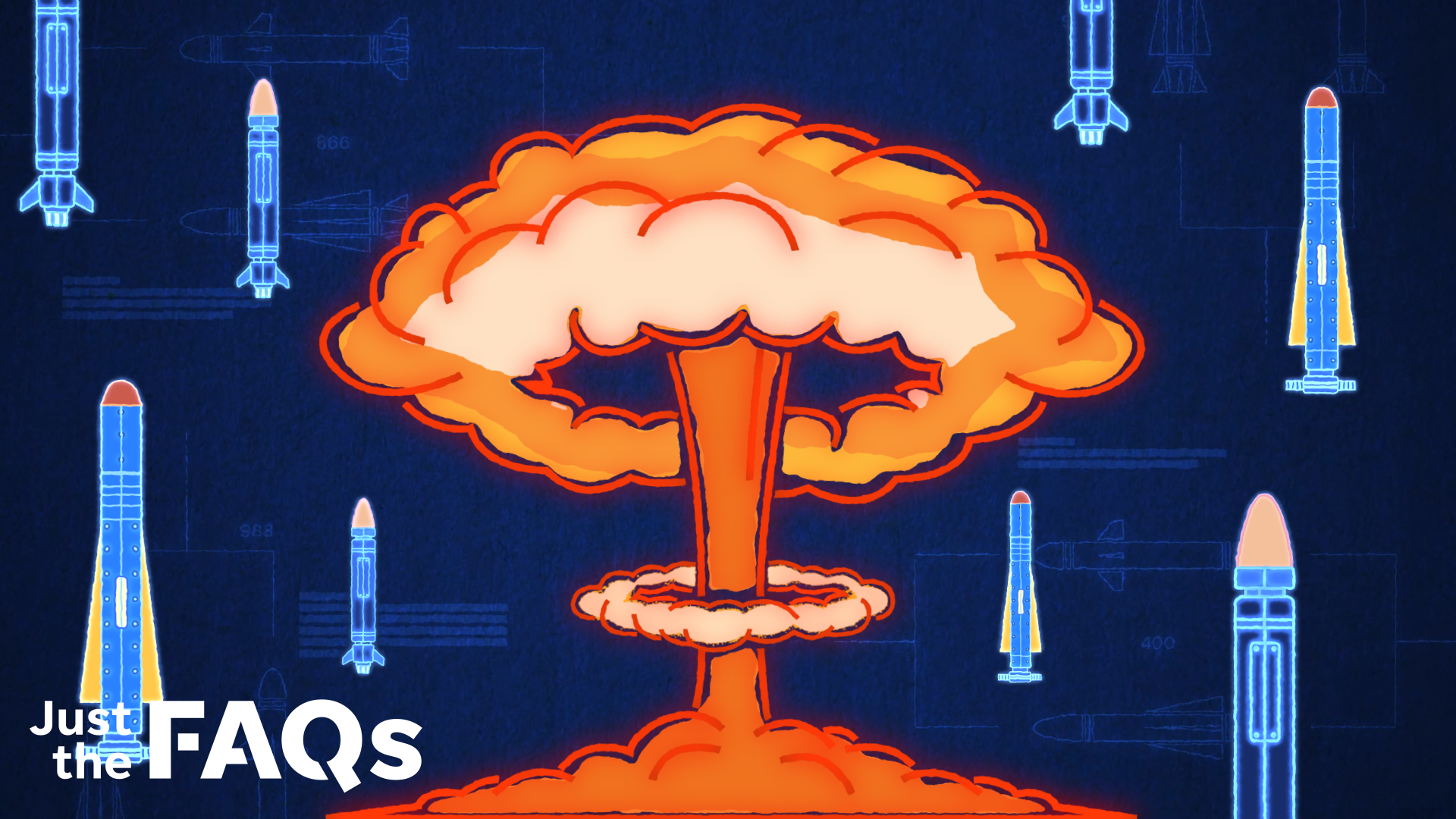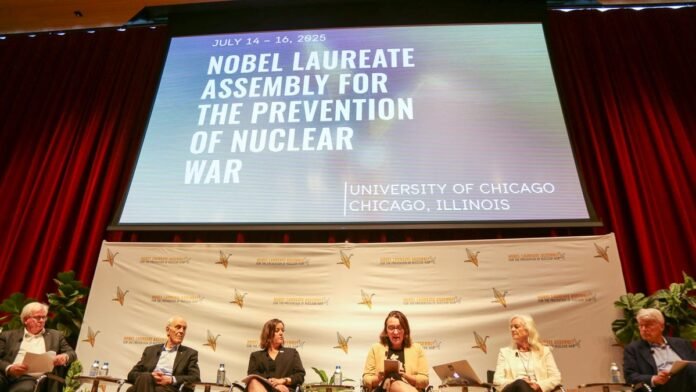Top nuclear experts gathered in Chicago to offer world leaders a playbook for reducing the risk of nuclear war.

Which country has the most nuclear weapons in the world?
There are thousands of nuclear weapons in the world, and just two countries possess 90% of them. Here are the safeguards in place to prevent nuclear war.
Just the FAQs, USA TODAY
- The Bulletin of the Atomic Scientists’ famed “Doomsday Clock” is the closest it has ever been to midnight.
- “Without clear and sustained efforts from world leaders to prevent nuclear war, there can be no doubt that our luck will finally run out,” said a statement by Nobel winners, faith leaders and experts.
- Vatican nuclear expert Cardinal Silvano Maria Tomasi said faith leaders should provide world leaders moral and ethical assessments of nuclear policy and technology.
CHICAGO − In the fall of 2022, U.S. spies said the chances of Russia using tactical nuclear weapons against Ukraine were 50% − a coin flip.
Nearly three years later, the risk of nuclear war has only increased, top experts say. The Bulletin of the Atomic Scientists’ famed “Doomsday Clock” is the closest it has ever been to midnight.
Humanity is “heading in the wrong direction” on the one threat that “could end civilization in an afternoon,” warned an assembly of Nobel laureates, nuclear experts, and diplomats gathered at the University of Chicago to mark the 80th anniversary of the planet’s first nuclear explosion in 1945 when the U.S. conducted the Trinity test in New Mexico.
Although Russia didn’t nuke its neighbor, the brutal war of attrition continues in Ukraine.
Two nuclear-armed countries, India and Pakistan, attacked each other in May. The U.S. and Israel, which both have nuclear weapons, bombed Iran in June to destroy its nuclear program. Popular support for building nuclear weapons grows in countries like Japan and South Korea.
Against this backdrop, more than a dozen Nobel Prize winners and numerous nuclear experts signed a “Declaration for the Prevention of Nuclear War” on July 16 with recommendations for world leaders to reduce the increasing risk of nuclear conflict.
“Despite having avoided nuclear catastrophes in the past, time and the law of probability are not on our side,” the declaration says. “Without clear and sustained efforts from world leaders to prevent nuclear war, there can be no doubt that our luck will finally run out.”
The declaration emerged from days of discussion and debate, said assembly leader David Gross, a University of California, Santa Barbara, physicist and 2004 Nobel Prize winner.
“We are calling on our leaders in the world to consider our suggestions and heed our warnings,” Gross said.
Longtime Vatican diplomat and nuclear advisor Cardinal Silvano Maria Tomasi argued that faith leaders should embrace a role in providing world leaders with independent moral and ethical assessments of nuclear policy and technology.
International agreements key to reducing risk
The declaration and speakers at its unveiling spoke extensively of the crucial role diplomacy and treaties played in building trust between countries with nuclear weapons and shrinking their arsenals after the Cold War.
Clock ticks on nuke treaties
But a key treaty remains unenforced, and the last remaining arms control agreement between the U.S. and Russia expires in February 2026.
The Comprehensive Nuclear Test Ban Treaty, or CTBT, is a 1996 international agreement that aims to ban explosive nuclear tests.
Although the CTBT Organization, headquartered in Vienna, Austria, successfully detects even underground nuclear tests (and identifies when suspicious seismic events aren’t test explosions), the treaty is not in force. Nine more countries, including the U.S. and Russia (which de-ratified the CTBT in 2023), must formally approve the treaty before it becomes binding international law.
At the assembly, CTBTO leader and former Australian diplomat Robert Floyd joined the Nobel winners in calling the international community to formally approve the testing ban.
Floyd argued that if countries with nuclear weapons resumed testing to build more destructive nukes, it could lead “other states to develop nuclear weapons and … a renewed global nuclear arms race.”
The declaration also highlighted the need for the U.S., Russia, and China to enter arms control discussions. The 2010 New START treaty, which limits American and Russian nuclear weapons deployments and enables the rivals to verify the other’s cooperation, expires in February 2026.
AI and the atom bomb
Artificial intelligence and its role in nuclear weapons matters also weighed heavily.
The declaration emphasized the “unprecedented and serious risks posed by artificial intelligence” and implored “all nuclear armed states to ensure meaningful and enhanced human control and oversight over nuclear command and control.”
Tomasi, the Vatican’s representative, said scientists, disarmament experts and faith leaders need to study “the ethical implications of emerging technologies,” such as AI, on “nuclear stability.”
World leaders, including former President Joe Biden and Chinese President Xi Jinping, generally agree that humans − and not AI algorithms − should control nuclear launch buttons.
But debate rages over the ideal, and safe, extent of integrating AI into other nuclear functions such as early warning, targeting, and communications.
A February 2025 report from the Center for a New American Security think tank on AI nuclear risk warned that “overreliance on untested, unreliable, or biased AI systems for decision support during a crisis” could potentially lead decision-makers down an escalatory path during a nuclear crisis.
Ultimately, argued Nobel winner Gross, progress in reducing the risks of nuclear weapons hinges on popular pressure on world leaders.
“The main motivation for the advances in reducing the risk of Armageddon was the fear of many … people throughout the world who demanded (action) from their leaders,” Gross said.
Davis Winkie’s role covering nuclear threats and national security at USA TODAY is supported by a partnership with Outrider Foundation and Journalism Funding Partners. Funders do not provide editorial input.
